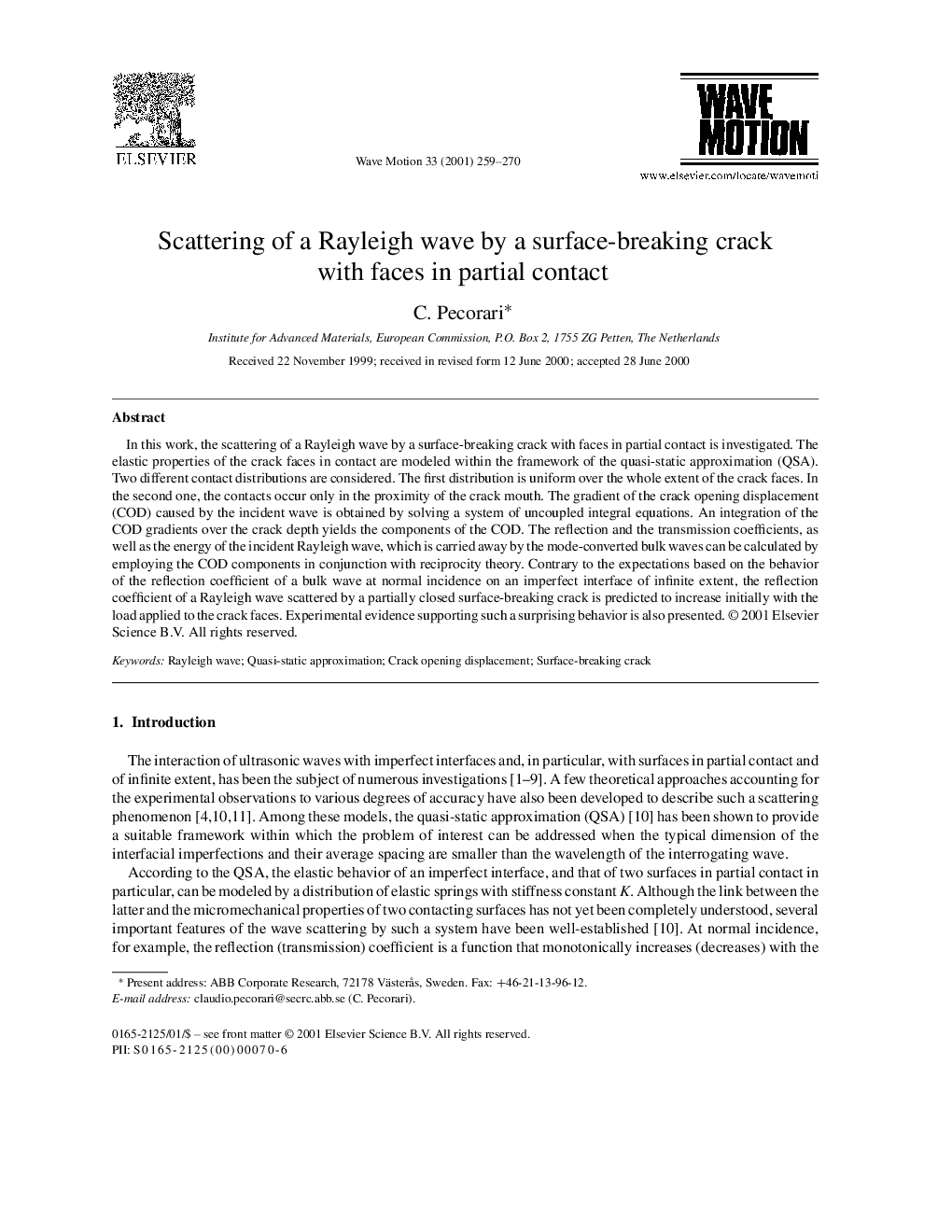| کد مقاله | کد نشریه | سال انتشار | مقاله انگلیسی | نسخه تمام متن |
|---|---|---|---|---|
| 5110650 | 1377785 | 2016 | 12 صفحه PDF | دانلود رایگان |
عنوان انگلیسی مقاله ISI
The use of smart work in government: Empirical analysis of Korean experiences
ترجمه فارسی عنوان
استفاده از کارهای هوشمند در دولت: تحلیل تجربی تجارب کره ای
دانلود مقاله + سفارش ترجمه
دانلود مقاله ISI انگلیسی
رایگان برای ایرانیان
کلمات کلیدی
ترجمه چکیده
این مطالعه با هدف تجزیه و تحلیل استفاده کنندگان از کارهای هوشمند و تعیین اینکه کاربران از کارهای هوشمند برای دولت در کره استفاده می کنند. به طور خاص، نویسندگان ویژگی های مختلف کارکنان هوشمند را توصیف می کنند و اثرات پیشینیان را به قصد استفاده و تجزیه و تحلیل رفتار کار هوشمند با استفاده از اولین بررسی عمومی کارهای هوشمند در بخش دولتی توصیف می کند. یافته ها نشان می دهد که میزان انتشار کارهای هوشمند از نظر تعداد کاربران کم است. با این حال، کارگران جوان که دارای مقامات پایین تر و شغل کمتر و کارگران در سازمان های شبه دولتی هستند، سطح نسبتا بالایی از قصد را نشان می دهند و از کارهای هوشمندانه بیشتر از سایر گروه های کارگری استفاده می کنند. مدل سازی معادلات ساختاری نشان می دهد که هزینه های شناخته شده رفت و آمد و سفرهای تجاری، بهره وری کارآیی و بهره وری، و پشتیبانی نهادی و تکنولوژیکی تاثیر مثبتی بر تصویب کارهای هوشمند توسط کارمندان عمومی دارد. در مقابل، انزوای اجتماعی و عدم ارتباط، و رهبری و مدیریت غیر دوستانه مرتبط با کار هوشمندانه، اثرات منفی دارد. افزون بر این، قصد استفاده از کارهای هوشمند، تأثیر متقابل بر روابط بین رانندگان / محدودیت ها و رفتار استفاده از کارهای هوشمند دارد. بر اساس این نتایج، مفاهیم نظری و سیاستگذاری برای ارتقاء کارهای هوشمند ارائه شده است.
موضوعات مرتبط
علوم انسانی و اجتماعی
مدیریت، کسب و کار و حسابداری
کسب و کار، مدیریت و حسابداری (عمومی)
چکیده انگلیسی
This study aims to analyze users of smart work and determine what the users use smart work for in government in Korea. More specifically, the authors describes the various characteristics of smart work users and analyzes the effects of antecedents on the intention to use, and the usage behavior of smart work using the first nation-wide survey of smart work in the public sector. The findings reveal that the level of diffusion of smart work appears to be low in terms of number of the users. However, younger workers who have lower positions and shorter job tenures and workers in quasi-governmental organizations show relatively high levels of intention, and actually use smart work more frequently than other employee groups. Structural equation modeling shows that the perceived costs of commuting and business trips, work productivity and efficiency, and institutional and technological support have positive effects on smart work adoption by public employees. In contrast, social isolation and lack of communication, and unfriendly leadership and management associated with smart work have negative effects. Moreover, the intention to use smart work has a mediating effect on the relationships between the drivers/constraints and the usage behavior of smart work. Based on these results, theoretical and policy implications for the promotion of smart work are presented.
ناشر
Database: Elsevier - ScienceDirect (ساینس دایرکت)
Journal: Government Information Quarterly - Volume 33, Issue 3, July 2016, Pages 562-571
Journal: Government Information Quarterly - Volume 33, Issue 3, July 2016, Pages 562-571
نویسندگان
Seok-Jin Eom, Nakbum Choi, Wookjoon Sung,
